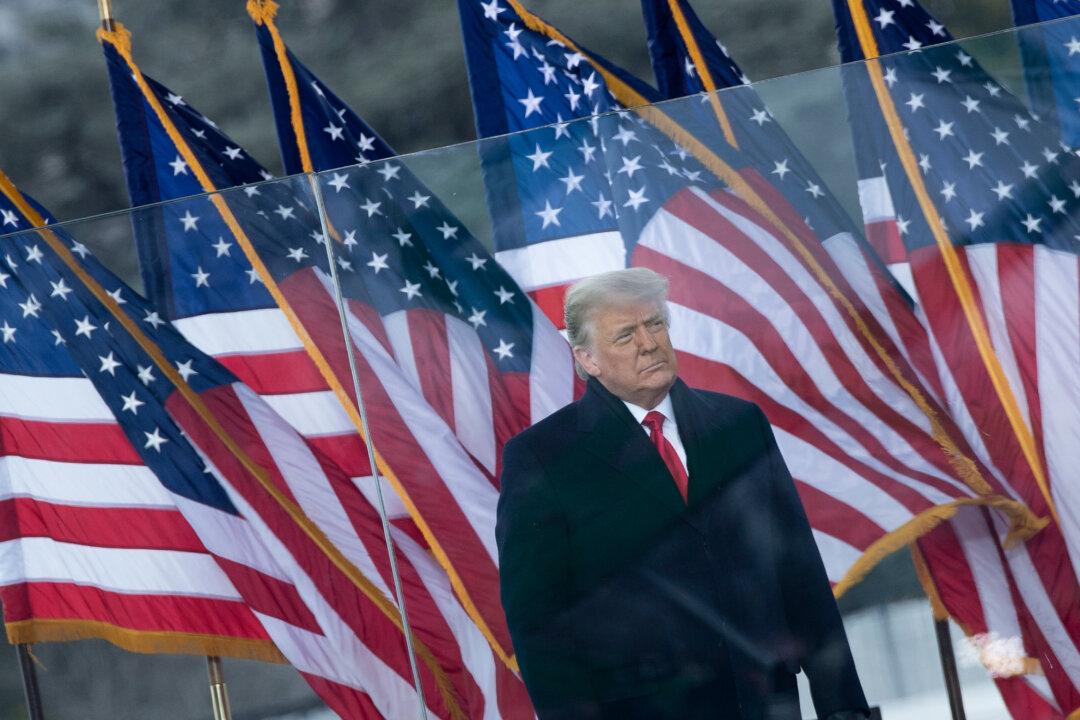Former President Donald Trump has filed a motion in federal court to dismiss the $30 million wrongful-death lawsuit brought by the former girlfriend of U.S. Capitol Police Officer Brian Sicknick, who died of a stroke on Jan. 7, 2021.
Sandra Garza, Sicknick’s former girlfriend and the representative of his estate, filed suit in January against Trump and Jan. 6 defendants Julian Khater and George Tanios. She is seeking at least $10 million in compensatory damages, plus unspecified punitive damages from each defendant.





